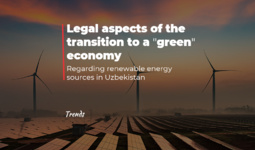Infographics: Trade and Investment Cooperation Between Uzbekistan and Qatar
Trade, economic, and investment relations between the Republic of Uzbekistan and the State of Qatar are showing steady growth and reaching a new qualitative level. In recent years, the two countries have demonstrated consistent progress in mutual trade and diversification of cooperation areas.





















leave a comment